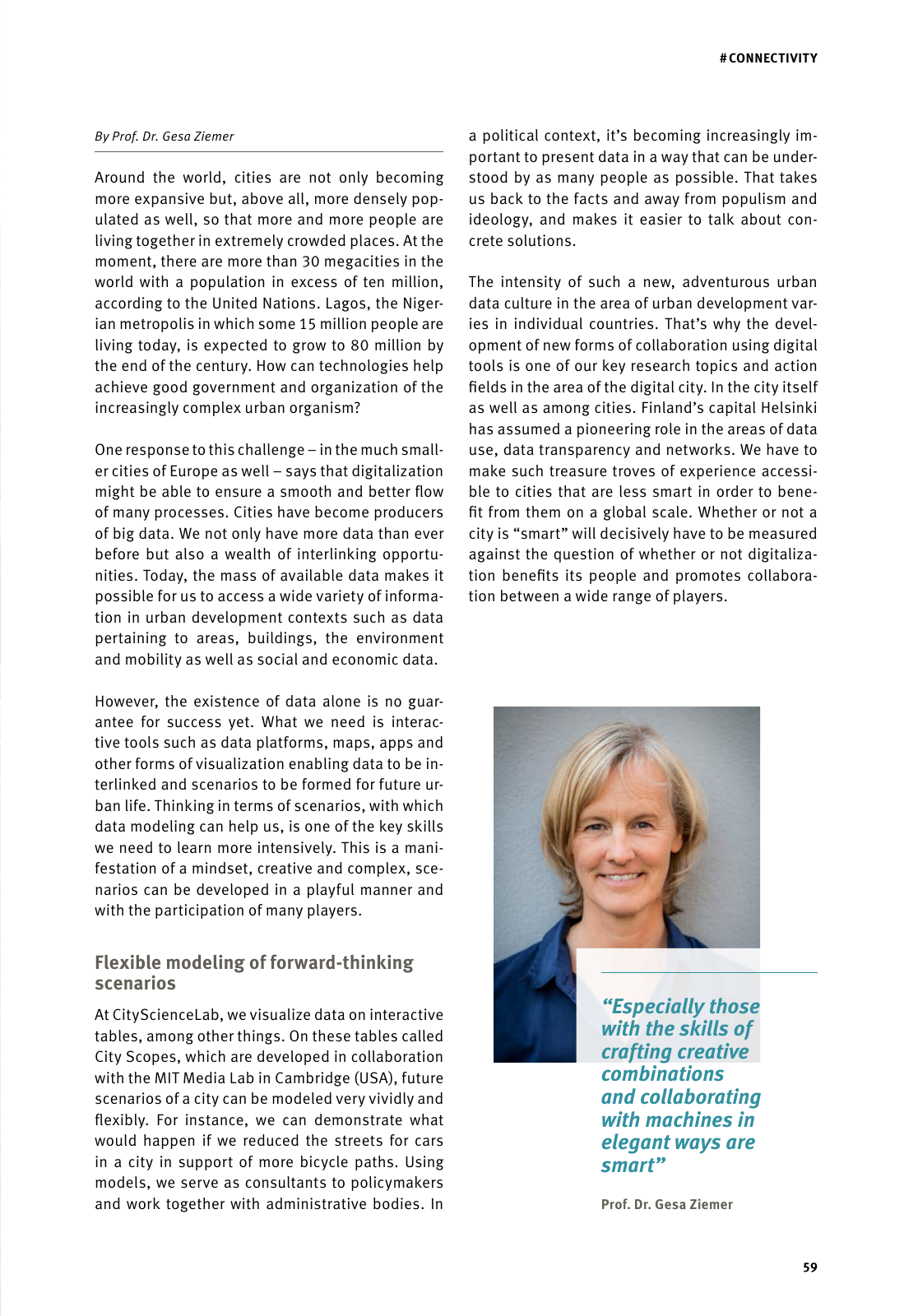Around the world cities are not only becoming more expansive but above all more densely pop ulated as well so that more and more people are living together in extremely crowded places At the moment there are more than 30 megacities in the world with a population in excess of ten million according to the United Nations Lagos the Niger ian metropolis in which some 15 million people are living today is expected to grow to 80 million by the end of the century How can technologies help achieve good government and organization of the increasingly complex urban organism One response to this challenge in the much small er cities of Europe as well says that digitalization might be able to ensure a smooth and better flow of many processes Cities have become producers of big data We not only have more data than ever before but also a wealth of interlinking opportu nities Today the mass of available data makes it possible for us to access a wide variety of informa tion in urban development contexts such as data pertaining to areas buildings the environment and mobility as well as social and economic data However the existence of data alone is no guar antee for success yet What we need is interac tive tools such as data platforms maps apps and other forms of visualization enabling data to be in terlinked and scenarios to be formed for future ur ban life Thinking in terms of scenarios with which data modeling can help us is one of the key skills we need to learn more intensively This is a mani festation of a mindset creative and complex sce narios can be developed in a playful manner and with the participation of many players Flexible modeling of forward thinking scenarios At CityScienceLab we visualize data on interactive tables among other things On these tables called City Scopes which are developed in collaboration with the MIT Media Lab in Cambridge USA future scenarios of a city can be modeled very vividly and flexibly For instance we can demonstrate what would happen if we reduced the streets for cars in a city in support of more bicycle paths Using models we serve as consultants to policymakers and work together with administrative bodies In By Prof Dr Gesa Ziemer a political context it s becoming increasingly im portant to present data in a way that can be under stood by as many people as possible That takes us back to the facts and away from populism and ideology and makes it easier to talk about con crete solutions The intensity of such a new adventurous urban data culture in the area of urban development var ies in individual countries That s why the devel opment of new forms of collaboration using digital tools is one of our key research topics and action fields in the area of the digital city In the city itself as well as among cities Finland s capital Helsinki has assumed a pioneering role in the areas of data use data transparency and networks We have to make such treasure troves of experience accessi ble to cities that are less smart in order to bene fit from them on a global scale Whether or not a city is smart will decisively have to be measured against the question of whether or not digitaliza tion benefits its people and promotes collabora tion between a wide range of players Especially those with the skills of crafting creative combinations and collaborating with machines in elegant ways are smart Prof Dr Gesa Ziemer 59 CONNECTIVITY

Hinweis: Dies ist eine maschinenlesbare No-Flash Ansicht.
Klicken Sie hier um zur Online-Version zu gelangen.
Klicken Sie hier um zur Online-Version zu gelangen.